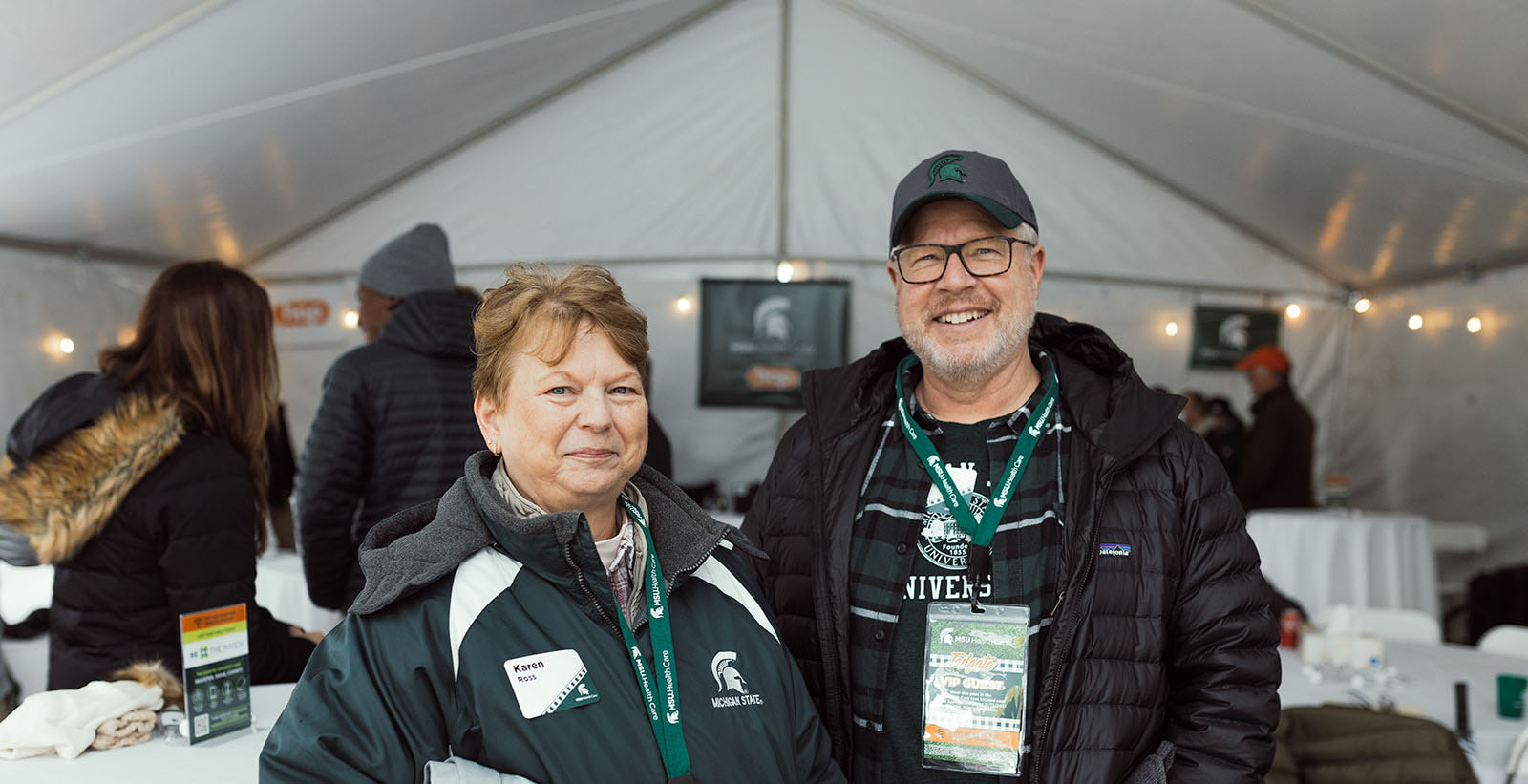Finance and Contract Manager Brings Essential PPE During Pandemic
November 24, 2021 - Lynn Waldsmith

Ross lauded for her efforts to secure PPE
It was eerie, like a scene from a dystopian science fiction movie. Each day she drove her GMC Sierra from her home in Bath to Michigan State University, but the traffic was gone. When she got to work, her coworkers were gone. The quiet surrounding her was surreal. She felt like she was living in The Twilight Zone.
For two months, from mid-March to mid-May of 2020, Karen Ross, Finance and Contract Manager, worked completely alone in her office to make sure that all of MSU Health Care’s clinical operations had enough personal protective equipment (PPE) during the early days of the pandemic.
It was a time when horror stories surrounding the lack of PPE were commonplace on cable TV news -- doctors and nurses throughout the country running out of gloves, or being forced to reuse N-95 masks, or having to wear plastic garbage bags in place of gowns.
"I went from not spending any hours on ordering PPE, to spending 40 hours a week. It became a full-time job overnight."Karen Ross
Fortunately, the PPE shortage never required such desperate measures from MSU Health Care workers, thanks largely to the efforts of Ross. Nevertheless, it was a complex problem that required immediate and extraordinary measures. Ross began by spending days developing a model that would enable each clinic to report to her the number, type and size of facial masks, surgical gowns and gloves needed each week.
She then contacted countless vendors to place orders and secured donations of supplies from MSU departments that went dark. Various MSU departments with 3D printers helped make bands for face shields. MSU Health Care also received a $175,000 PPE grant from the state of Michigan.
Looking back, Ross says she can’t believe how time consuming the process was to locate supplies.
“I went from not spending any hours on ordering PPE, to spending 40 hours a week,” she said. “It became a full-time job overnight.”
During the first 45 days of the effort, Ross was able to order 6,900 N-95 masks, 90,000 surgical face coverings, 28,000 gowns and 100,000 gloves, despite the severe shortage of PPE and the clogged supply chain situation.
But determining exactly what various MSU Health Care clinics needed, then spending endless hours contacting potential vendors to try to fulfill those needs, was only the beginning. There was also no way to distribute all of the PPE equipment, not to mention having to find an area to store all of the supplies.
"I may have been the point person, but it was a group effort. I knew absolutely nothing about medical supplies, but I worked with our chief nursing officer, our chief medical officer, the purchasing department, clinic managers, and many others. Everyone worked together to keep track of inventory so I could try to order what we needed.Karen Ross
That problem was solved when the University Corporate Research Park, a subsidiary of the MSU Foundation, provided a large, caged area where supplies could be sorted and counted. As for delivering the PPE, Ross began filling up the bed of her truck and making the rounds to various MSU Health Care drop-off points to ensure health care workers had what they needed. Eventually, MSU Procurement began handling deliveries and warehousing by adding it to the shop.msu.edu ordering site.
Though Ross is credited with being a PPE superhero, she is modest about the integral role she played during the onset of the COVID-19 crisis.
“I may have been the point person, but it was a group effort,” she said. “I knew absolutely nothing about medical supplies, but I worked with our chief nursing officer, our chief medical officer, the purchasing department, clinic managers, and many others. Everyone worked together to keep track of inventory so I could try to order what we needed.”

